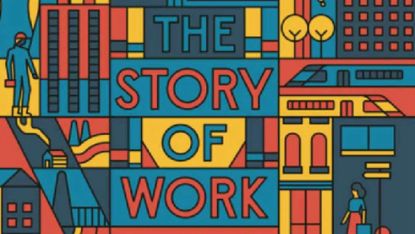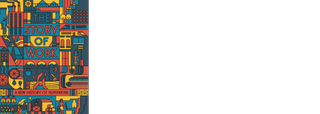Book of the week: The Story of Work by Jan Lucassen
Lucassen, a Dutch historian, sets out to ‘chronicle the history of human work’

Fittingly, a vast amount of labour has gone into this book, said Christina Patterson in The Guardian. In it, Jan Lucassen, a Dutch historian, sets out to “chronicle the history of human work, from our first strides as Homo sapiens 700,000 years ago to the rise of the robot now”.
He begins his account in the hunter-gatherer period – which accounts for 98% of human history. Although less blissful than is often supposed (stalking mammoths was no picnic), hunter-gatherer societies were more egalitarian and cooperative than any that have existed since.
Around 12,000 years ago, agriculture emerged, and this eventually generated the increased yields that made it possible for some people to start doing other types of work. “The seeds were sown for the stratified societies we live in now.”
Subscribe to The Week
Escape your echo chamber. Get the facts behind the news, plus analysis from multiple perspectives.

Sign up for The Week's Free Newsletters
From our morning news briefing to a weekly Good News Newsletter, get the best of The Week delivered directly to your inbox.
From our morning news briefing to a weekly Good News Newsletter, get the best of The Week delivered directly to your inbox.
While a book on this scale could have been “full of vague extrapolations”, Lucassen is a lively writer with an eye for the arresting detail. “The result is an encyclopaedic survey that’s also a whistle-stop tour of human history – and it’s absolutely fascinating.”
As “people learnt to wring more output from the land, they built the basis of modern human existence”, said The Economist. Not only did the first professions emerge, but also notions of private property (whose roots, Lucassen suggests, lay in livestock farming). “From around 7,000 years ago the first great cities arose, in Mesopotamia and then South and East Asia.”
In these more complex societies, new working arrangements appeared, including servitude, self-employment and – crucially – wage labour. The latter, Lucassen suggests, eventually combined with “standardised, low-denomination coinage” to produce the “economic magic” that came with “true markets”.
It must be said that reviewing this book often felt like “work, not play”, said James Marriott in The Times. Amid the “daunting subheadings”, and detailing of arcane academic debates, it was hard to discern an “overarching theme”. Yet if one key idea does emerge, it’s the way that, particularly in the modern era, work has “increasingly monopolised human time and human psychology”.
When Lucassen’s survey arrives at the present, his “central and abiding worry” becomes clear, said Simon Ings in The Daily Telegraph. He fears that with the rise of automation and technological surveillance, slavery – a “depressing constant” of recorded history – will make a strong return. It’s a bleak note on which to end a book that, though exhausting, is enlightening – and “full of colour, surprise and human warmth”.
Yale University Press 544pp £25; The Week Bookshop £19.99

The Week Bookshop
To order this title or any other book in print, visit theweekbookshop.co.uk, or speak to a bookseller on 020-3176 3835. Opening times: Monday to Saturday 9am-5.30pm and Sunday 10am-4pm.
Create an account with the same email registered to your subscription to unlock access.
Sign up for Today's Best Articles in your inbox
A free daily email with the biggest news stories of the day – and the best features from TheWeek.com
-
Why is Tesla stumbling?
In the Spotlight More competition, confusion about the future and a giant pay package for Elon Musk
By Joel Mathis, The Week US Published
-
 How Taylor Swift changed copyright negotiations in music
How Taylor Swift changed copyright negotiations in musicunder the radar The success of Taylor's Version rerecordings has put new pressure on record labels
By Theara Coleman, The Week US Published
-
 Job scams are increasingly common. Here's what to look out for.
Job scams are increasingly common. Here's what to look out for.The Explainer You should never pay for an application or give out your personal info before being hired
By Becca Stanek, The Week US Published
-
 Sarah Langan recommends 6 women-centric horror books
Sarah Langan recommends 6 women-centric horror booksFeature The horror novelist recommends works by Stephen King, Gillian Flynn, and more
By The Week US Published
-
 6 spacious homes for car lovers
6 spacious homes for car loversFeature Featuring a 14-car showroom in Oregon and a Bentley-style apartment in Florida
By The Week Staff Published
-
 6 serene homes in Vermont
6 serene homes in VermontFeatures Featuring a four-level Shaker barn in Hartland and a Scandinavian-inspired home in Stowe
By The Week US Published
-
 Amanda Montell's 6 favorite books that will expand your knowledge
Amanda Montell's 6 favorite books that will expand your knowledgeFeature The linguist recommends works by Mary Roach, Alice Carrière, and more
By The Week US Published
-
 Rowan Beaird recommends 6 compelling books from the 1950s
Rowan Beaird recommends 6 compelling books from the 1950sFeature The author recommends works by Patricia Highsmith, Shirley Jackson, and more
By The Week US Published
-
 6 spacious homes with great rec rooms
6 spacious homes with great rec roomsFeature Featuring a suspended fireplace in Arizona and a marine-themed home in Maine
By The Week Published
-
 Recipe: gnocchi di spinaci (spinach gnocchi)
Recipe: gnocchi di spinaci (spinach gnocchi)The Week Recommends Forget the potatoes for this gnocchi made of the 'classic combination' of spinach and ricotta
By The Week UK Published
-
 Stephen Graham Jones' 6 scary books with deeper meanings
Stephen Graham Jones' 6 scary books with deeper meaningsFeature The best-selling author recommends works by Stephen King, Sara Gran, and more
By The Week US Published